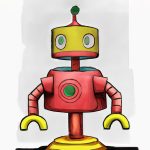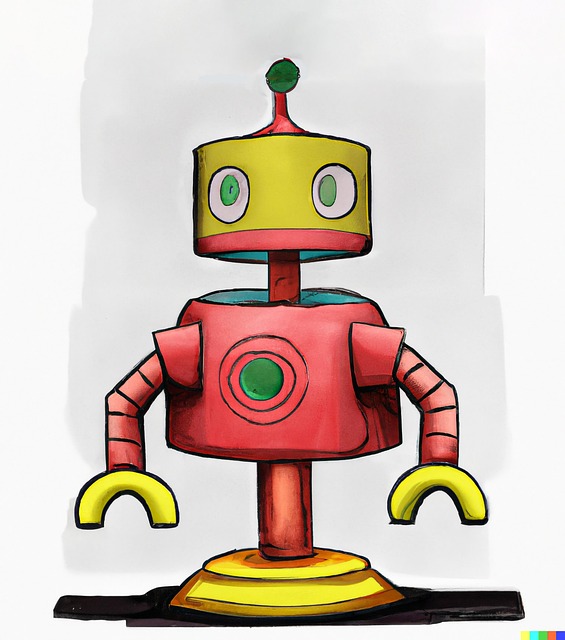# Transforming Human Experience: The Pivotal Role of AI Technology in Our Modern World
Artificial Intelligence (AI) has emerged as a transformative force in contemporary society, fundamentally altering the way we interact with technology and with each other. As we navigate through the complexities of the 21st century, AI technology stands at the forefront of innovation, reshaping industries, enhancing personal experiences, and redefining the very fabric of human existence. This article explores the multifaceted impact of AI across various domains, highlighting its role in improving efficiency, augmenting human capabilities, and fostering new forms of creativity.
## Enhancing Efficiency Across Industries
Efficiency has become a cornerstone of success in today’s fast-paced world, and AI technology is leading the charge in optimizing operations across numerous sectors. In manufacturing, for instance, AI-driven automation has streamlined production processes, reducing human error and increasing output. Robotic systems equipped with machine learning algorithms can adapt to changing conditions, ensuring that production lines remain agile and responsive to market demands.
Healthcare has also benefited immensely from AI advancements. Predictive analytics tools allow healthcare providers to analyze vast amounts of patient data, leading to earlier diagnoses and personalized treatment plans. The integration of AI in medical imaging, for example, has significantly improved the accuracy of disease detection, enabling radiologists to identify anomalies that may go unnoticed by the human eye. As a result, the potential for improved patient outcomes and reduced healthcare costs is becoming increasingly tangible.
Moreover, in the realm of logistics, AI algorithms optimize supply chain management by predicting demand and managing inventory levels. Companies can now anticipate fluctuations in consumer behavior, ensuring that products are available when and where they are needed. This not only enhances customer satisfaction but also minimizes waste and maximizes profitability. The cumulative effect of these advancements illustrates how AI is not merely a tool for efficiency but a catalyst for economic growth and innovation.
## Augmenting Human Capabilities
While AI technology is often viewed as a replacement for human labor, it is crucial to recognize its potential to augment human capabilities rather than replace them. By automating repetitive tasks, AI frees up valuable time for individuals to focus on more complex and creative endeavors. This symbiotic relationship between humans and machines is exemplified in various fields, including education, where AI-driven platforms provide personalized learning experiences tailored to individual student needs.
In the realm of creative industries, AI tools are enabling artists, musicians, and writers to explore new horizons. Generative algorithms can produce original compositions, assist in the design process, or even co-write stories with human collaborators. This collaboration between human creativity and machine intelligence leads to innovative outputs that challenge traditional notions of authorship and artistic expression. The result is a richer tapestry of cultural production, where AI serves as both a partner and a source of inspiration.
Furthermore, AI technology is enhancing decision-making processes across various domains. In finance, for instance, AI systems analyze market trends and provide actionable insights, enabling investors to make informed choices. Similarly, in environmental science, AI models help researchers predict climate change impacts, facilitating proactive measures to mitigate its effects. By augmenting human intelligence with data-driven insights, AI empowers individuals and organizations to navigate complex challenges more effectively.
## Fostering New Forms of Creativity
The intersection of AI and creativity is one of the most exciting developments in the modern world. As machines become increasingly capable of generating content, the boundaries of creativity are being redefined. AI-driven tools are not only assisting artists but also democratizing access to creative resources. Individuals without formal training can leverage AI to produce art, music, and literature, fostering a new wave of creators who might not have otherwise had the opportunity to express themselves.
In addition, AI has the potential to revolutionize the entertainment industry. Streaming platforms utilize AI algorithms to analyze viewer preferences, recommending content that aligns with individual tastes. This personalized approach enhances user engagement, leading to a more immersive and satisfying experience. Furthermore, AI-generated content, such as virtual reality experiences and interactive storytelling, is pushing the boundaries of traditional entertainment, offering audiences novel ways to engage with narratives.
The implications of AI in creative fields extend beyond mere content generation. Collaborative projects between humans and AI challenge our understanding of creativity itself. As machines learn from vast datasets of artistic works, they begin to develop their own styles and techniques, prompting discussions about originality and the nature of creativity. These developments raise important questions about the role of the artist in an AI-enhanced world and how we define creativity in an age where machines can produce works that rival human efforts.
## Conclusion
AI technology is undeniably reshaping the landscape of human experience in profound ways. By enhancing efficiency across industries, augmenting human capabilities, and fostering new forms of creativity, AI is not just a tool but a transformative force that is redefining our interactions with the world. As we continue to integrate AI into our daily lives, it is essential to approach these advancements with a balanced perspective, recognizing both the opportunities and challenges they present.
The future of AI holds immense potential, but it also necessitates thoughtful consideration of ethical implications and societal impacts. As we harness the power of AI to improve our lives, we must remain vigilant stewards of this technology, ensuring that it serves to enhance the human experience rather than diminish it. In doing so, we can pave the way for a future where AI and humanity coexist harmoniously, each enriching the other in a shared journey of exploration and innovation.











